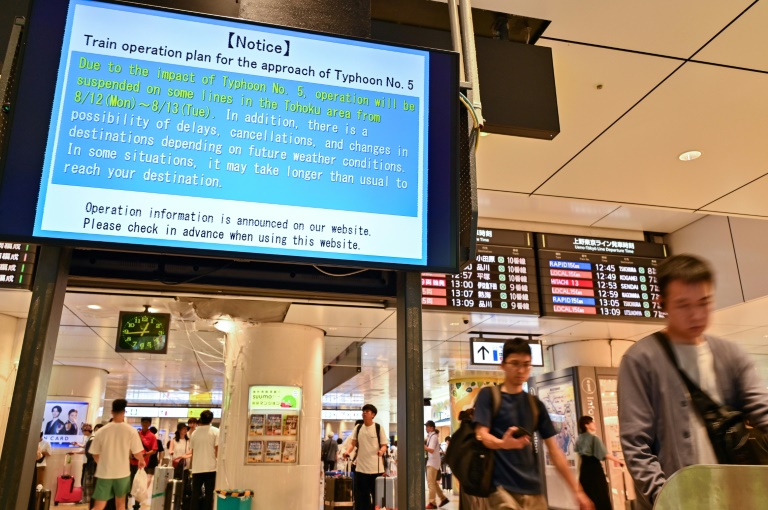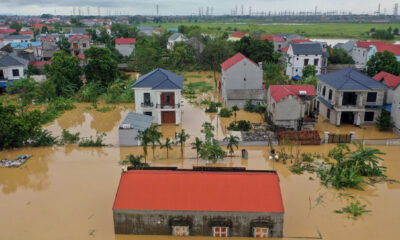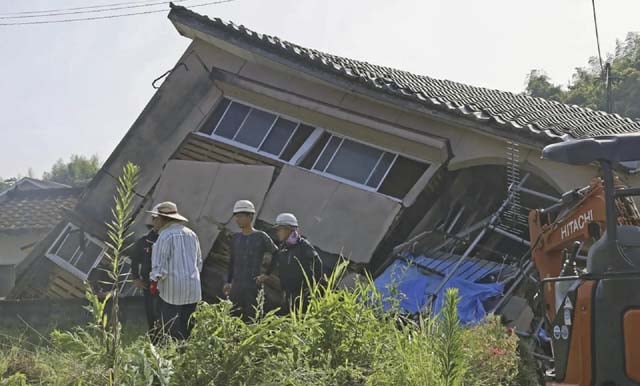World News
Japan cancels trains and flights in anticipation of another typhoon

In the middle of a busy holiday week, hundreds of Japanese trains and planes were canceled on Thursday as a new typhoon made landfall near the archipelago.
Typhoon Ampil was predicted to pass over the Tokyo area, which is home to some 40 million people, late on Thursday. On Friday and Saturday, it is expected to churn along the Pacific coast, following days after Tropical Storm Maria delivered record-breaking rains.
On Friday, Japan Airlines canceled 26 international and 191 local flights, impacting 38,600 people, while ANA canceled almost 280 domestic flights, affecting over 60,000 passengers.
Significant stretches of Japan’s bullet train system, including the well-traveled route between Tokyo and Nagoya, the country’s capital, are also expected to be suspended on Friday.
Ampil, like Maria before it, occurs during Japan’s “obon” vacation week, during which millions of people visit their hometowns.
Ampil was 300 kilometers (190 miles) off the isolated Pacific island of Chichijima around 9:00 am (0000 GMT), with gusts of up to 180 kilometers per hour.
Ampil, which means tamarind in Cambodian, was rated as “strong” and was expected to return to the Pacific on Saturday and Sunday.
Yoshifumi Matsumura, the minister of disaster management, said during a routine briefing, “We urge the public to stay informed about evacuation advisories and take early steps to seek safety.”
Residents in the eastern regions were forewarned by the weather agency of the possibility of severe gusts, flooding, overflowing rivers, and landslides.
Major typhoons that frequently hit Japan might result in deadly landslides.
Climate change is causing typhoons in the region to form closer to coastlines, intensify more quickly, and last longer over land, according to a study published last month.
until arrive at the conclusions, researchers from universities in Singapore and the US examined over 64,000 modeled historical and upcoming storms from the 19th century until the end of the 21st century.






